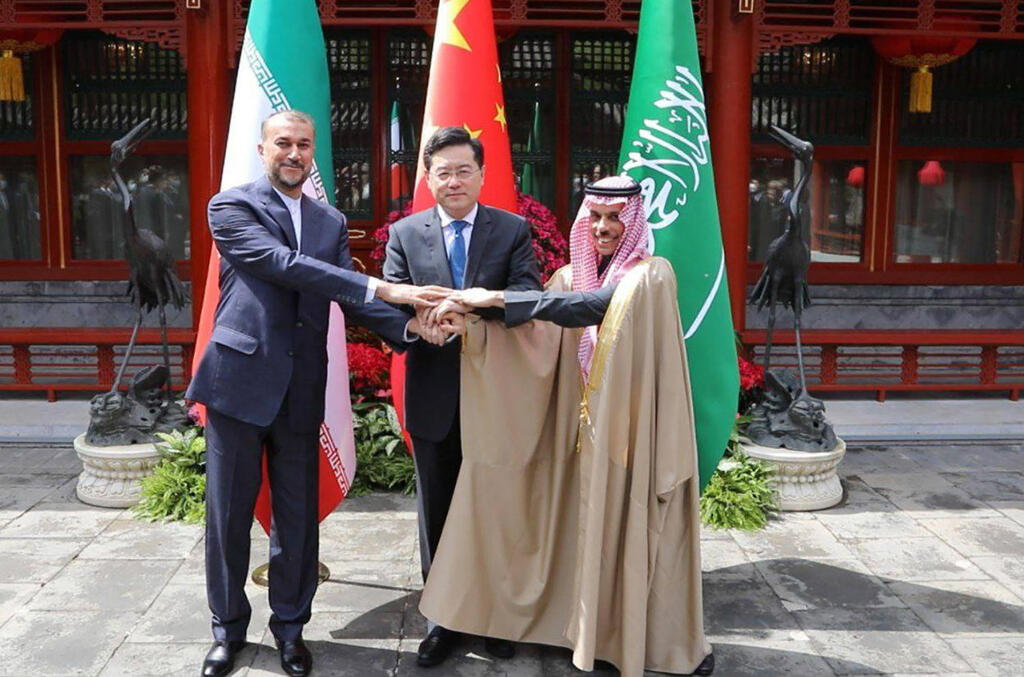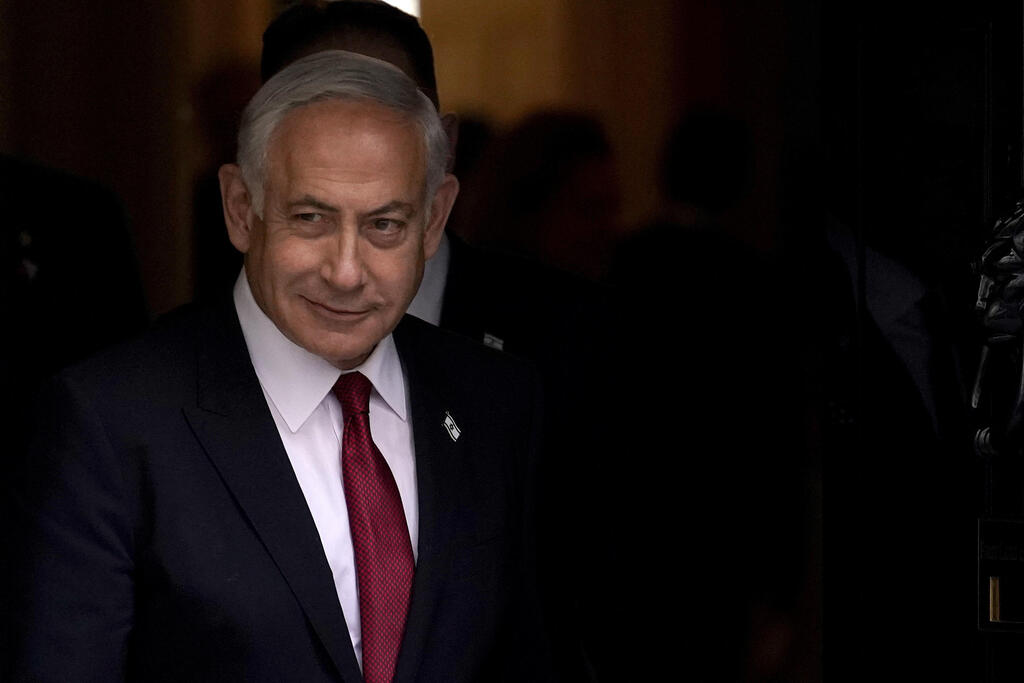Getting your Trinity Audio player ready...
Twelve years after Syria was suspended from the Arab League, President Bashar al-Assad will participate in the organization's meeting on Friday in the Saudi capital of Riyadh. Syria's return, facilitated by the United Arab Emirates and Jordan, is just one of the many strategic shifts occurring in the Middle East region these days.
Read More:
Under Chinese auspices, Iran is recovering from Western sanctions and restoring its relations with Saudi Arabia and the United Arab Emirates. This process is also bringing an end to the conflict with the Houthi rebels in Yemen, who had previously enjoyed Tehran's backing.
The Chinese have managed to exploit the U.S. withdrawal from the nuclear agreement, which fractured the international coalition built under the Obama administration, in order to provide Iran with an escape from sanctions in exchange for strategic cooperation.
Russia, too, is not sitting idle and deepening its collaboration with the Ayatollah regime amid the conflict in Ukraine.
Given these regional developments, one could have expected Jerusalem would also act strategically. However, it has almost entirely abandoned the consideration of dealing with the profound regional changes in recent years and instead focused on tactics.
Fewer pacts, more operations like Shield and Arrow in Gaza. The Abraham Accords were signed nearly three years ago as an alternative plan to prevent Prime Minister Benjamin Netanyahu’s plans to annex West Bank territories as part of Donald Trump's so-called "Deal of the Century" and marked the last time Israel participated in regional strategic maneuvering.
Since then, the Middle East has made leaps and bounds while we’re lagging behind. Henry Kissinger's quip from half a century ago that "Israel has no foreign policy, only a domestic policy," rings ever truer and leads us down a diplomatic cul de sac.
Netanyahu is trapped, whether willingly or not, in a far-right government and is discovering that the cost of maintaining a messianic coalition is distancing from allied nations.
National Security Minister Itamar Ben-Gvir’s visit to the Temple Mount led to the prime minister's visit to the United Arab Emirates being canceled. The invitation from the White House never came, and Netanyahu realizes that as the Americans distance themselves and lose interest in him, the regional countries also lose interest in Israel.
Our greatest strength has always been serving as a bridge to the United States, and when the bridge becomes shaky, we become much less desirable or relevant.
 Nadav Tamir Photo: Tal Shahar
Nadav Tamir Photo: Tal ShaharAn ancient Arabic proverb says, "movement is a blessing," yet Israel insists on getting stuck in one place without negotiations with the Palestinians or regional dialogue. The result is more and more tactical crises, more military operations, and more assassinations that lead us nowhere. Israel has no exit strategy, not from military operations and not from the stagnant, bloody daily reality.
Unlike us, other countries in the region do move constantly. They mend frayed ties, form new alliances, and create a new reality of which Israel is not a part. This is not a predetermined fate. Israel can only be part of the region if it addresses the central issue of the Palestinian conflict (despite the Abraham Accords, which came into existence in exchange for relinquishing the dangerous fantasy of annexation).
Those who dream of peace with Saudi Arabia need to initiate a meaningful dialogue with the Palestinians. The path to Riyadh goes through Ramallah and requires restoring trust with Washington, which has been undermined not only due to the political upheaval but also because of the lack of diplomatic action and succumbing to more and more right-wing provocations such as ascent to the Temple Mount, de facto annexation steps, and coalition agreements that will lead to de jure annexation.
We need the Americans in order to re-engage in regional affairs, and we need to engage in dialogue with the Palestinians to generate hope for a solution instead of living in a perpetual cycle of violence.
Nadav Tamir is Executive Director at JStreet Israel



